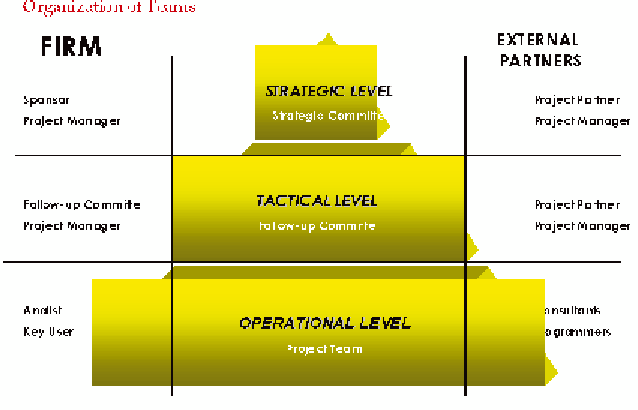Information Technology Reference
In-Depth Information
Figure 2. The organization of teams
policies oriented to the human capital, policies
oriented to the tasks (technical people rewarded,
work assured and work utility)
It seems clear that the human resources policies
of the information system can be varied, especially
by having into account the wide number of avail-
able tools in this area.
•
To formulate a conduct code
•
To establish the clear acting rules in situa-
tions of ethic conflict
•
To clearly specify the sanctions applied in
non ethic conducts
•
To public recognise the ethical conducts
•
To develop programs, meetings and rec-
ommend readings
The Ethics and the ERP System
•
To inform, promote the knowledge of the
Acts implied with the proper use of IS and
IT at Organisations
The CIO must be the highest responsible for the
computer ethics in the ERP system, and must
then supervise and pay attention to the influence
of the ERP over society and consider the poli-
cies that can be adopted for a correct use of the
technology. This preoccupation for the ethics is
immediately perceived by people working with
the ERP systems, especially for those in charge
of the more invisible part of them.
Parker (1988) proposes ten actions to promote
the ethical conduct in the employees in the infor-
mation system of a firm that could be extended
to the ERP cases,
•
To delimitate the ethical responsibilities if
each worker according to their tasks.
•
To promote the use of “restructuring pro-
grams” for people avoiding ethical norms.
•
To promote the integration of workers in
the professional associations
•
To offer example with the own acts
the organization inertia in the firm
It is referred to the aspects of visioning and plan-
ning
(
Falkowski et al., 1998; Holland et al., 1999;

Search WWH ::

Custom Search